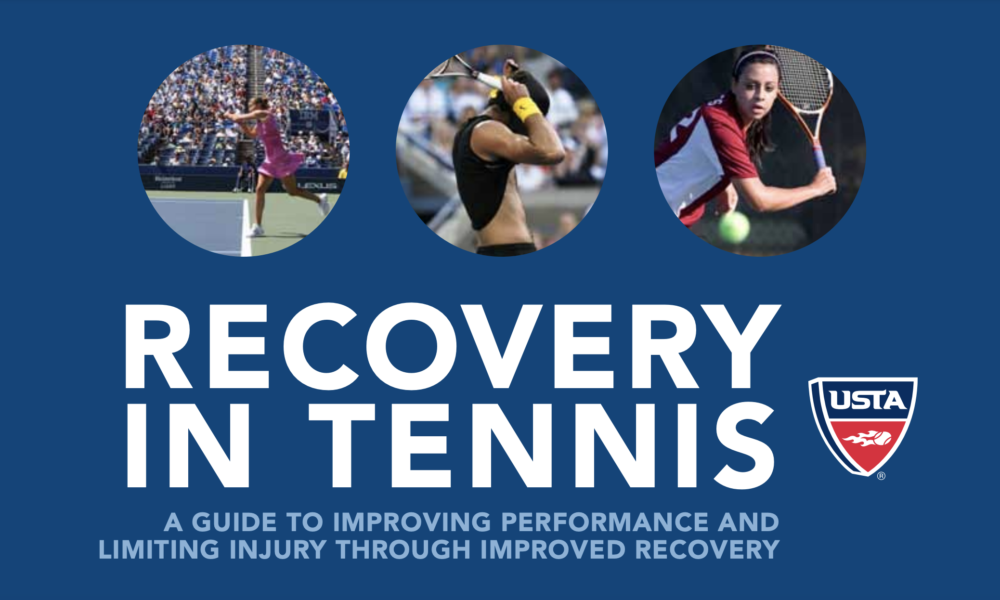Coach Resources
USTA: Recovery in Tennis

Summary
The “Recovery in Tennis” booklet by the USTA explores effective recovery strategies to enhance performance and minimize injuries for tennis players. It compiles extensive research on tennis-specific recovery, covering areas such as fatigue, nutrition, hydration, and psychological aspects. Proper recovery, including hydration and nutrition, is essential for optimal performance and injury prevention, especially during training and tournaments.
Highlights -💪
- Importance of Recovery: Recovery is crucial for performance and injury prevention. ⏳
- Hydration Strategies: Proper hydration helps mitigate fatigue and enhances recovery. 💧
- Nutritional Needs: Consuming carbohydrates and protein post-activity is vital for muscle recovery. 🍽️
- Psychological Factors: Mental fatigue can impact performance; awareness and support are essential. 🧠
- Musculoskeletal Health: Flexibility and strength training are key to avoiding injuries. 🦵
- Individualized Approach: Recovery strategies should be tailored to each athlete’s needs. 🎯
- Education is Key: Athletes and coaches must be educated on recovery practices to optimize performance. 📚
Key Insights -🔍
Education and Awareness: Continuous education on recovery strategies is essential for athletes and coaches to ensure they implement effective recovery practices. This knowledge can lead to better health management and enhanced athletic performance. 📖
Recovery as a Performance Enhancer: Recovery isn’t merely downtime; it is an active process that, when optimized, can lead to improved performance metrics. Athletes often underestimate its value, leading to potential burnout and injuries. ⚡
Hydration’s Role in Recovery: Dehydration can profoundly impact muscle function and recovery. Implementing systematic hydration protocols can improve performance during training and competition, emphasizing the necessity of proper fluid intake before, during, and after matches. 🚰
Nutritional Timing: Consuming the right nutrients within 45 minutes post-exercise significantly boosts glycogen resynthesis and muscle repair, highlighting the importance of timing in nutrition for athletes. 🍏
Psychological Recovery: Mental fatigue can manifest as physical fatigue, and recognizing the signs of psychological stress is crucial for maintaining performance levels. Strategies like mindfulness and relaxation techniques can enhance recovery. 🧘♂️
Musculoskeletal Considerations: Regular flexibility and strength training can prevent overuse injuries common in tennis players. Recovery protocols should focus on enhancing muscle function and flexibility to protect against injuries. 🏋️♂️
Individualized Recovery Plans: Each athlete’s recovery needs are unique based on their training age and intensity. Personalized recovery strategies can better address individual fatigue types and optimize performance. 🎨
Full Article: USTA Recovery in Tennis
You must be logged in to post a comment Login